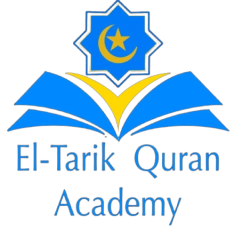The Five Pillars of Islam are considered the foundation of the Islamic faith and serve as the core of Muslim beliefs and practices. Each pillar holds significant spiritual, social, and moral implications for Muslims, shaping their worldview and guiding their daily lives. Below are some of the key significances of each of the Five Pillars of Islam: |
| Shahada: The Declaration of Faith The Shahada is the declaration of faith in the oneness of Allah and the prophethood of Muhammad. By reciting the Shahada, Muslims acknowledge the supremacy of Allah and affirm their belief in the Prophet Muhammad as the final messenger of God. The significance of this pillar is that it serves as the foundation for all other aspects of Islam, as it emphasizes the importance of monotheism, faith, and surrender to God. It also unites Muslims around the world, regardless of their ethnic or cultural backgrounds, by providing a common belief system. Salat: Prayer Salat is the mandatory prayer that Muslims perform five times a day. It is a physical and spiritual act of worship that reminds Muslims of their obligation to God and reinforces their connection to the community of believers. The significance of Salat is that it helps Muslims maintain a continuous state of remembrance of God throughout the day, which in turn helps them to stay mindful and humble. It also fosters discipline, punctuality, and orderliness, as Muslims are required to perform their prayers at specific times and in a prescribed manner. Zakat: Almsgiving Zakat is the obligation for Muslims to give a portion of their wealth to those in need, including the poor, orphans, and other vulnerable members of society. The significance of Zakat is that it promotes social justice and equality by ensuring that the wealth of the community is distributed fairly. It also helps Muslims to develop empathy and compassion for others, and encourages them to be mindful of the less fortunate. Sawm: Fasting Sawm is the act of fasting from dawn until sunset during the month of Ramadan, which is the ninth month of the Islamic calendar. Fasting is a physical and spiritual act of worship that helps Muslims to develop self-discipline, self-control, and empathy for those who are less fortunate. The significance of Sawm is that it serves as a reminder of the importance of gratitude, patience, and perseverance, and helps Muslims to purify their souls and strengthen their faith. Hajj: Pilgrimage Hajj is the pilgrimage to the holy city of Mecca that Muslims are obligated to perform at least once in their lifetime, if they are physically and financially able to do so. It is a physical and spiritual journey that emphasizes the unity of the Muslim community and reinforces the importance of surrendering to God. The significance of Hajj is that it helps Muslims to detach themselves from worldly concerns and focus on their spiritual journey. It also serves as a reminder of the equality of all human beings, as pilgrims from all over the world come together in one place to perform the same rituals, regardless of their social status or nationality. |
| Overall, the Five Pillars of Islam have profound significance for Muslims, shaping their faith, worldview, and daily lives. Each pillar emphasizes a different aspect of the Islamic tradition, from the importance of monotheism and faith to the promotion of social justice and equality. By following these pillars, Muslims seek to deepen their connection to God, purify their souls, and live a life that is guided by the principles of compassion, humility, and service. |
|

